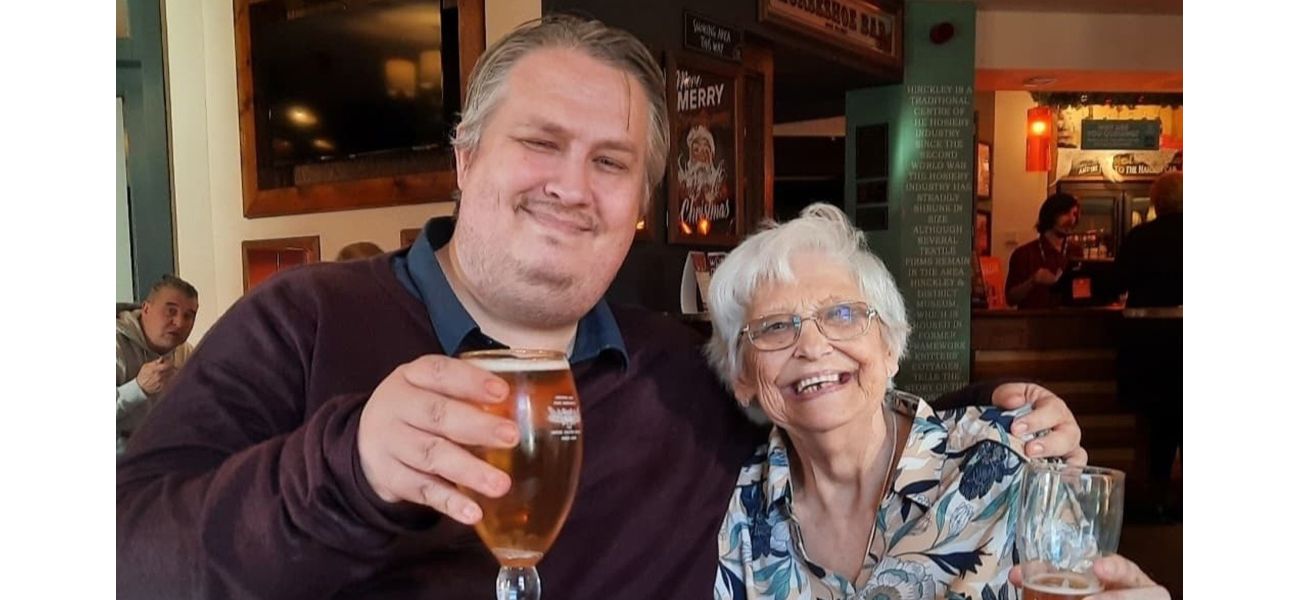A mother passed away after waiting 11 hours for an ambulance. The writer will always remember her cries.
I was shocked to find out how often others have experienced long ambulance wait times during my research.
September 9th 2025.

My mother, Jackie, was a vibrant and lively spirit, even at 78 years old. She loved attending live music events in our village and spending time with her friends. She was a cherished member of our community, known for her strength, love, and support. To me, she was not only my mother but also my best friend. So when I received a call one morning that she had fallen at her home and was in pain, I rushed to her side with a friend by my side.
As I arrived, I found my mother lying on the bedroom floor, in agony and stripped of her dignity. She looked up at me with pleading eyes and asked, "When is help coming?" Those words will stay with me forever, as I struggled to give her an answer or the comfort she needed. Little did I know that this scene would unfold into an 11-hour wait for an ambulance, which tragically led to my mother's death just two days later from sepsis.
No family should have to endure the pain and helplessness that we experienced, but sadly, this is the reality for thousands of families across Britain today. My mother's death was a devastating loss, not only for our family but also for our community. She was more than just a statistic, she was a beloved mother, Nana, and friend. The pain of losing her still lingers, and I miss her every day.
The day of my mother's fall was a Sunday, July 10, 2022. She had a community alarm, and when she pressed it, I received the call. I immediately rushed to her side with a friend, hoping to provide her with the comfort and care she needed. It was 5:01 am when we arrived, and my friend quickly called for an ambulance. Little did we know that we would be waiting for 11 long hours before any help arrived.
That day also marked the publication of new "league tables" that rated the performance of NHS trusts in England. These tables assessed various criteria, including waiting times, treatment outcomes, and ambulance response times. It was disheartening to learn that 80% of England's acute hospital trusts were considered to be failing, including the hospital where my mother was eventually taken. It was also shocking to see that some trusts had response times of up to 10 hours.
As we waited for an ambulance, we were reassured that the wait would not be that long. However, as the hours passed, our hope turned to despair. I called 999 repeatedly, desperate for updates, but each time I received the same answer - help would arrive as soon as possible. The feeling of helplessness was overwhelming, and I questioned if we should have driven my mother to the hospital ourselves. But we were advised not to move her, as it could worsen her injuries, and we trusted that an ambulance would come.
Finally, after 11 agonizing hours, a paramedic arrived and urgently called for an ambulance. It arrived half an hour later, and the paramedics were kind and compassionate, doing their best within a broken system. However, it was too late for my mother, and she passed away later that evening, just two days after her fall.
The following weeks were a blur of grief and anger. I couldn't shake off the feeling that my mother's death could have been prevented if the system had worked more effectively. I started researching ambulance waiting times and was shocked to find out how common our story was. Thousands of families have faced similar experiences, and this realization spurred me into action.
I joined patient advocacy groups and campaigned relentlessly for proper NHS funding, improved ambulance response times, and social care reform. I shared my mother's story countless times and spoke out publicly, hoping to bring about real change. However, despite some progress, critical issues like ambulance response times and A&E handovers remain unresolved.
Recently, Labour announced plans for a commission to review social care, which is essential for easing hospital pressures. But the final report isn't scheduled until 2028. How many more lives will be lost waiting for change? My mother deserved better, and so do thousands of other families who have suffered similar tragedies.
To keep my mother's memory alive and raise awareness of this crisis, we have placed memorial benches outside Conservative and Labour Headquarters, held public vigils, and continued to campaign. But what would truly honor my mother's memory is concrete action. We need proper funding for the NHS, recruitment and retention of ambulance staff, and immediate availability of ambulances when needed.
I know my mother would want me to fight for this injustice. She did not deserve to spend her final hours in pain, abandoned by a system meant to protect her. No one deserves that. My mother was more than a statistic; she was a vibrant soul who deserved dignity, respect, and timely medical care. I refuse to stay silent while others face the same fate. No other family should go through what we did.
If you have a similar story, please share it with us by emailing jess.email. Let's come together and demand the change that our loved ones deserve.
As I arrived, I found my mother lying on the bedroom floor, in agony and stripped of her dignity. She looked up at me with pleading eyes and asked, "When is help coming?" Those words will stay with me forever, as I struggled to give her an answer or the comfort she needed. Little did I know that this scene would unfold into an 11-hour wait for an ambulance, which tragically led to my mother's death just two days later from sepsis.
No family should have to endure the pain and helplessness that we experienced, but sadly, this is the reality for thousands of families across Britain today. My mother's death was a devastating loss, not only for our family but also for our community. She was more than just a statistic, she was a beloved mother, Nana, and friend. The pain of losing her still lingers, and I miss her every day.
The day of my mother's fall was a Sunday, July 10, 2022. She had a community alarm, and when she pressed it, I received the call. I immediately rushed to her side with a friend, hoping to provide her with the comfort and care she needed. It was 5:01 am when we arrived, and my friend quickly called for an ambulance. Little did we know that we would be waiting for 11 long hours before any help arrived.
That day also marked the publication of new "league tables" that rated the performance of NHS trusts in England. These tables assessed various criteria, including waiting times, treatment outcomes, and ambulance response times. It was disheartening to learn that 80% of England's acute hospital trusts were considered to be failing, including the hospital where my mother was eventually taken. It was also shocking to see that some trusts had response times of up to 10 hours.
As we waited for an ambulance, we were reassured that the wait would not be that long. However, as the hours passed, our hope turned to despair. I called 999 repeatedly, desperate for updates, but each time I received the same answer - help would arrive as soon as possible. The feeling of helplessness was overwhelming, and I questioned if we should have driven my mother to the hospital ourselves. But we were advised not to move her, as it could worsen her injuries, and we trusted that an ambulance would come.
Finally, after 11 agonizing hours, a paramedic arrived and urgently called for an ambulance. It arrived half an hour later, and the paramedics were kind and compassionate, doing their best within a broken system. However, it was too late for my mother, and she passed away later that evening, just two days after her fall.
The following weeks were a blur of grief and anger. I couldn't shake off the feeling that my mother's death could have been prevented if the system had worked more effectively. I started researching ambulance waiting times and was shocked to find out how common our story was. Thousands of families have faced similar experiences, and this realization spurred me into action.
I joined patient advocacy groups and campaigned relentlessly for proper NHS funding, improved ambulance response times, and social care reform. I shared my mother's story countless times and spoke out publicly, hoping to bring about real change. However, despite some progress, critical issues like ambulance response times and A&E handovers remain unresolved.
Recently, Labour announced plans for a commission to review social care, which is essential for easing hospital pressures. But the final report isn't scheduled until 2028. How many more lives will be lost waiting for change? My mother deserved better, and so do thousands of other families who have suffered similar tragedies.
To keep my mother's memory alive and raise awareness of this crisis, we have placed memorial benches outside Conservative and Labour Headquarters, held public vigils, and continued to campaign. But what would truly honor my mother's memory is concrete action. We need proper funding for the NHS, recruitment and retention of ambulance staff, and immediate availability of ambulances when needed.
I know my mother would want me to fight for this injustice. She did not deserve to spend her final hours in pain, abandoned by a system meant to protect her. No one deserves that. My mother was more than a statistic; she was a vibrant soul who deserved dignity, respect, and timely medical care. I refuse to stay silent while others face the same fate. No other family should go through what we did.
If you have a similar story, please share it with us by emailing jess.email. Let's come together and demand the change that our loved ones deserve.
[This article has been trending online recently and has been generated with AI. Your feed is customized.]
[Generative AI is experimental.]
0
0
Submit Comment





